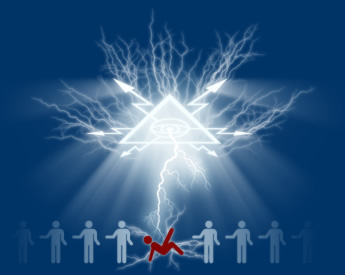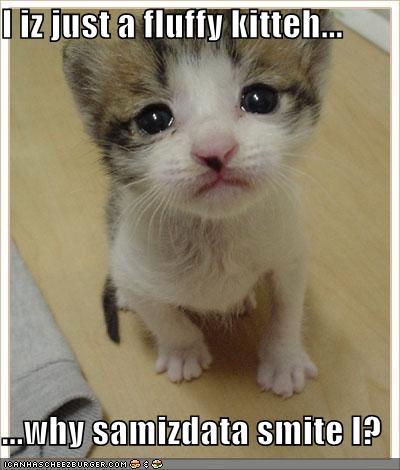We are developing the social individualist meta-context for the future. From the very serious to the extremely frivolous... lets see what is on the mind of the Samizdata people.
Samizdata, derived from Samizdat /n. - a system of clandestine publication of banned literature in the USSR [Russ.,= self-publishing house]
|
“America doesn’t make anything anymore” is a powerful talking point, but it’s false. We make plenty, including some of the most complex, high-valued goods in the world, from aircraft to pharmaceuticals to advanced electronics. Our workers don’t make many T-shirts or toasters; other countries can do it more cheaply. And the more successfully we produce and export advanced machinery, the more foreign goods we can afford to import. America’s industrial base is not collapsing. It’s evolving—becoming more productive, more specialized, and more capital-intensive. Protectionism won’t bring back the past or revive old jobs. It will just make the future more expensive and shift workers into lower-paying jobs.
– Veronique de Rugy, Reason magazine.
Lest any Trump admirers get all upset about my posting this quotation it is worth pointing out that there is plenty of protectionist guff on my side of the Atlantic as well. The EU has its Customs Union – the aspects of the bloc that I like the least – and it is described in typically bureaucratic fashion, here. This article in the Financial Times contains the claim that the EU is not as comprehensive in its “protective shields” as the US, Canada and Australia. That said, free trade in general terms is in global retreat, unfortunately, and not simply under the Trump administration – previous US governments were hardly much better, although that is not setting the bar very high.
I have jousted a bit in the comments on previous threads with those claiming that tariffs are necessary, for various (and to my mind, fallacious and often self-contradictory reasons): to “protect jobs”; national security and diversification of supply; as a club to hit supposedly foolish and oppressive other countries; to raise taxes and shift away from income taxes, or that comparative advantage on the David Ricardo model does not work if you allow cross-border capital flows. All the arguments are, in my view, flawed and in some cases, just plain wrong. (Here is a good summary of the arguments contra protectionism.)
As it is used a lot these days, here’s a good take-down, from the Hoover Institution, of the “national security” argument for tariffs. I can also recommend a new book, Free Trade In The 21s Century, a collection of essays by folk from the political, business and economics world. It is a big read, but good to immerse in if you want to delve into the arguments.
What I see playing out today in the US – and at times in Europe – is the way that, since the end of the Cold War and the supposed triumph of free market ideas in the subsequent 20-plus years, the argument was not made with sufficient force and the benefits not adequately spelled out. So here we are. And one big problem is that what Austrian economist Joseph Schumpeter called the “creative destruction” of capitalism meant that the supposed losers of all this commotion, such as car workers in the UK West Midlands or the US “rust belt” did not get, as far as they could tell, much immediate uplift from the greater overall prosperity that open trade brought. Telling them to “learn to code” just riled them up. (Explaining to an unemployed coal miner or machine tool operator that they should learn a very different skill is difficult, at any age, but particularly if the argument comes from a politician who appears to have never had a real job.) And this, it seems to me, is the fundamental issue: how can a culture of adaptability and can-do attitudes be fostered in a world of constant and at times, disturbing change? (Robert Tracinski makes a good attempt to do so, here.) Because if that does not happen, the populists of the left and the right, whether a Trump, a William Jennings Bryan, etc, will energetically seek to fill the market void. (HL Mencken magnificently destroyed Bryan, who was an opponent of gold-backed money and held many other terrible views that are, I fear, still popular in certain quarters.)
This book, Capitalism In America, from a few years ago by journalist Adrian Wooldridge and former Federal Reserve chairman, jazz musician and economist Alan Greenspan (full disclosure: I have met both of them), gives a good overview of the rise and fall and then rise of arguments about free trade, globalisation, the problems with how the losers from disruption can demand destructive changes, and more. If advocates of free trade like me cannot explain all of this, then the protectionist argument will gain ground, to calamitous effect.
As most of you will know, I covered the sentencing of the Southport Killer live on Twitter/X as event unfolded in the courtroom on 23 January 2025.
During the hearing, I created a timeline recounting what happened on the day of the attack, minute-by-minute, so that the public could see the full horror of this attack, and what had been kept out of the media.
This was followed by indirect criticism from Merseyside Police who claimed the families had asked for the details of the case not to be published. This had been a lie, told for the convenience of the Police who did not want a riot to breakout as a result of their lies and inaction.
– Charlie Bentley-Astor
Read the whole thing.
Keep comments relevant.
The first lockdown in the UK did not technically have legal force until three days after Johnson’s address. But that didn’t stop police going after people almost immediately. This may sound like a trivial oversight, but it does underscore the authoritarian nature of how lockdown rules were made and imposed. For a brief period at least, police were arresting people on the basis not of laws passed democratically in parliament, but on the mere words of the prime minister, merely because they had been uttered in a television broadcast. This really did bring Britain into ‘police state’ territory.
– Fraser Myers
Why? How many real-life, off-screen cases of femicide has Tate actually been provably linked with? Not as many as a casual newspaper reader may be led to presume. Andrew didn’t bomb all those little girls to death at the Manchester Arena a few years back, did he? Mere days after Adolescence went up on Netflix, the UK’s counter-terrorism tsar, Robin Simcox, released a report into 100 convicted UK-based terrorists arrested between 2004 and 2021, analysing their “mindset material”, like social media activity. This found that, of the 100 studied, 85 could be classed as Islamists, 14 as ‘far-Right’ (whatever that even is now) and… one as being an incel. Appropriately enough, really, for such a committed breed of professional loners.
– Steven Tucker (£)
Defining the benefit of spending as who gets the money rather than what gets bought is economic insanity. We might have a little insight there as to why government control of the economy ends up impoverishing.
– Tim Worstall
Robbie Collin in the Telegraph actually gave it three stars:
Disney’s Snow White: Not too woke – and better than Wicked
“And they all lived adequately ever after” is not the fairy-tale ending Disney was presumably originally gunning for. But at this point, the studio will surely take what it can get.
[…]
…I’ll say this for the result: it’s better than Wicked. The opening act sets out just how existentially tearing our heroine’s existence is under Queen Gal. (With apologies to Milan Kundera, call it The Unbearable Snow-Whiteness of Being.) And for the most part, this section is fairly beige and dull. But once Zegler scuttles off to the forest, where she teams up with two chirpy septets – the digitised dwarfs and a zany gaggle of bandits, who may have been dwarf replacements in an early draft – it really picks up.
The new versions of two classic numbers, Heigh-Ho and Whistle While You Work, are stylishly choreographed and rousingly performed, while a handful of the new songs, from The Greatest Showman’s Benj Pasek and Justin Paul, just about keep pace. (I loved Princess Problems, a teasing ode to Gen-Z prissiness which delivers about all the culture-war the film is prepared to wage.)
In contrast, Peter Bradshaw in the Guardian gives it one star, and I get the feeling that if he had free rein he’d have given it one asteroid:
Snow White review – Disney’s exhaustingly awful reboot axes the prince and makes the dwarves mo-cap
That title [Snow White] is a description of the page on which new Hollywood ideas get written. Here is a pointless new live-action musical version of the Snow White myth, a kind of un-Wicked approach to the story and a merch-enabling money machine. Where other movies are playfully reimagining the backstories of famous villains, this one plays it straight, but with carefully curated revisionist tweaks. These are all too obviously agonising and backlash-second-guessing, but knowing that at some basic level the brand identity has to be kept pristine. This is particularly evident in the costume design, with which the wicked witch gets a pointy dark crown and skull-hugging black balaclava and Snow White is lumbered with a supermarket-retail tweenie outfit with puffy-sleeved shoulders.
[…]
There are some changes: the hero is no longer a prince, but a more democratic citizen who leads a Robin Hood type insurgency from the forest against the witch’s tyranny with SW joining in on a Maid Marian basis. But he still gets to do the controversial non-consent kiss once our heroine has gone into her picturesque coma. But the dwarves? Will this film make them look sort of like everyone else, like the Munchkins in Wicked? No. This Snow White feebly makes them mo-cap (motion-capture) animated figures, but it also – heartsinkingly – duplicates their presence by giving the prince his own gang of seven live-action bandits, in which people with dwarfism are represented. This fudged, pseudo-progressive approach is so tiring you’ll want to put your head in your hands.
Has anybody reading this actually done that thing we used to do with films before the internet?
“The Russians are deemed to have agency: the could stop the war. Hamas are treated as if they lack self-determination: they are not held accountable for their crimes or expected to release hostages. Excuses are found for them, in a classic case of the racism of low expectations. Every attack on Israel triggers demands that Jerusalem surrenders territory, that it helps those seeking to exterminate it; things are that are (correctly) never demanded of Ukraine.”
– Allister Heath, in an excellent take-down of the double-think that seems to operate with the UK government and much of the political/chattering classes about what is going on in Ukraine/Russia and Israel one against various Islamist forces. (Article is behind paywall.)
Elon Musk should understand that the priority here is that no more Teslas get burned, and that he should not have provoked aggressive lunatics in the first place. He should be told by GM and Toyota, who are brokering a truce, to surrender his ownership stake immediately.
– Tim Newman
“I keep six honest serving-men (They taught me all I knew); Their names are What and Why and When And How and Where and Who. I send them over land and sea, I send them east and west; But after they have worked for me, I give them all a rest.
>I let them rest from nine till five, For I am busy then, As well as breakfast, lunch, and tea, For they are hungry men. But different folk have different views; I know a person small— She keeps ten million serving-men, Who get no rest at all!
She sends’em abroad on her own affairs, From the second she opens her eyes— One million Hows, two million Wheres, And seven million Whys!”
– Rudyard Kipling, Just So Stories (1902)
There is something deeply wrong when a law passed with cross-party consensus and endorsed by Britain’s most trusted charities has made it impossible to run an internet forum for hamster owners.
— Sam Dunitriu, as screenshotted by atlanticesque to point out the wilful obtuseness of an opposing view.
“Councils begging for your savings isn’t a net zero innovation – it’s an embarrassment”, writes James Baxter-Derrington in the Telegraph.
In an attempt to plug the ever-increasing funding gap, bankrupt-adjacent local councils have dusted off the begging bowl and covered it in tinsel.
Under the guise of investment, Green-led Bristol has become the latest council to offer what smells like a voluntary council tax to fund responsibilities that should be met from their existing budgets.
[…]
But in a demonstration of phenomenal gall these local bodies have launched their own Kickstarter for Councils, asking not only their residents, but anyone across the country, to foot the net zero bill – in exchange for below-market returns.
These green bonds can be found on Abundance Investment, a platform that facilitates these loans for a slice of the pie – 0.75pc of the total sum raised alongside an annual 0.2pc fee. The website proudly declares that it offers investments with councils “in a solid financial position”, despite Bristol councillors declaring just two months ago that the body faced bankruptcy if it can’t close its £52m funding gap.
Samizdata is not often seen as the go-to place for investment advice, but, on balance and after careful consideration, I would suggest that readers seeking a home for their money avoid “Bristol Climate Action Investment 1” like the plague and avoid “Hackney Green Investment 2” like Hackney. (“Does ‘Murder Mile’ still deserve its name?” asked the Hackney Post after a lull. Short answer: Yes.)
Nonetheless, I salute these councils for seeking to raise additional money by asking for it instead of demanding it with menaces. I would salute them even more if they moved entirely to a voluntary system. Though the prospect is unlikely, I hope the investors make their money back with interest, so that this trend towards councils raising money by ethical means might spread.
Blog is getting hit hard with spam so the anti-spam defences have become a bit less discriminating. If your comment fails to appear, it might be because we think you are a blogroach, but far more likely it’s the algorithm taking umbrage rather than us.



|
Who Are We? The Samizdata people are a bunch of sinister and heavily armed globalist illuminati who seek to infect the entire world with the values of personal liberty and several property. Amongst our many crimes is a sense of humour and the intermittent use of British spelling.
We are also a varied group made up of social individualists, classical liberals, whigs, libertarians, extropians, futurists, ‘Porcupines’, Karl Popper fetishists, recovering neo-conservatives, crazed Ayn Rand worshipers, over-caffeinated Virginia Postrel devotees, witty Frédéric Bastiat wannabes, cypherpunks, minarchists, kritarchists and wild-eyed anarcho-capitalists from Britain, North America, Australia and Europe.
|







Recent Comments